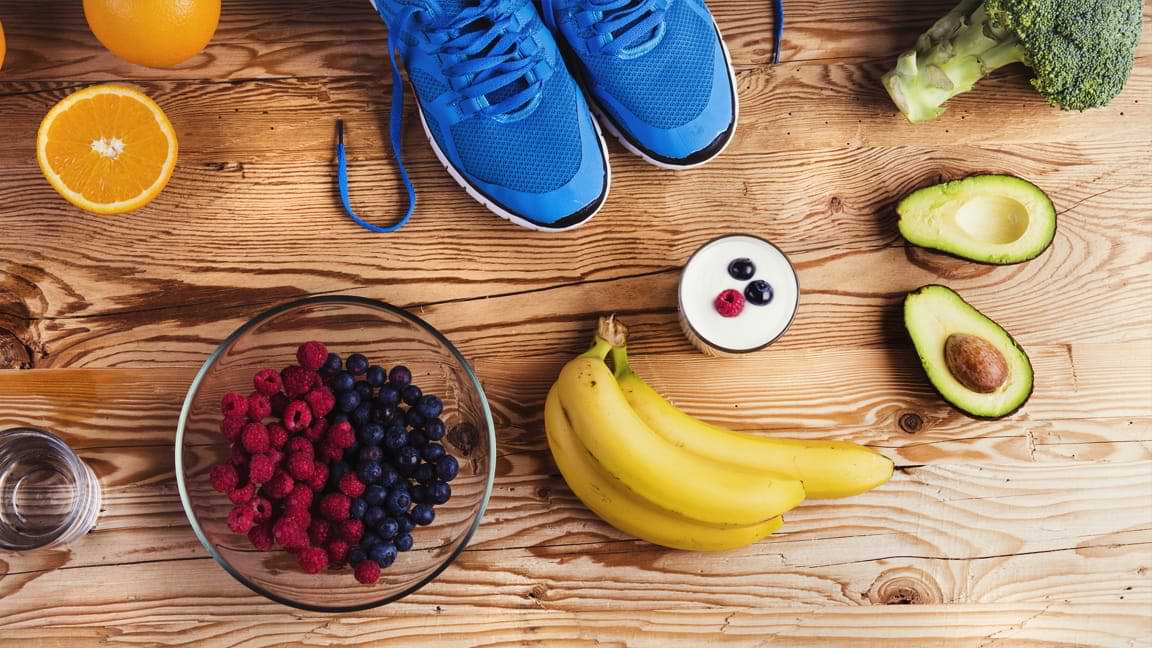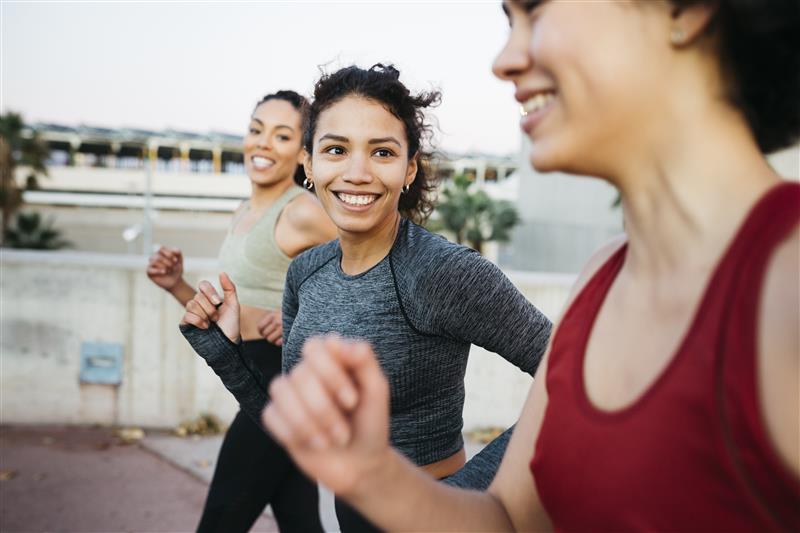Food as Fuel Before, During and After Workouts

Your body is your vehicle, so you have to keep your engine running when you work out. That means fueling your body by eating nutritious foods and staying hydrated.
Good nutrition can enhance the performance of, and recovery from, sporting activities.
You don’t have to adhere to a rigid schedule, and there are no hard-fast rules. But there are some things you should do before, during and after you work out.
Before: Fuel up!
Not fueling up before you work out is like driving a car on empty. You also may not have enough energy to maximize your workout, and you may limit your ability to burn calories.
Ideally, fuel up two hours before you exercise by:
- Hydrating with water.
- Eating healthy carbohydrates, such as whole-grain cereals (with low-fat or fat-free milk), whole-wheat toast, low-fat or fat-free yogurt, whole-grain pasta, brown rice and fruits and vegetables.
- Avoiding saturated fats and proteins, even healthy ones. Your stomach digests these types of fuels slower. This takes away oxygen and energy-delivering blood from your muscles to aid digestion.
If you only have 5-10 minutes before you exercise, eat a piece of fresh fruit, such as an apple or banana.
The key is to eat easily digested carbohydrates, so you don’t feel sluggish.
During: Make a pit stop.
Whether you’re a professional athlete who trains for several hours or you have a low-to-moderate routine, keep your body hydrated with small, frequent sips of water.
You don’t need to eat during a workout that’s an hour or less. But, for longer, high-intensity vigorous workouts, you should eat 30 to 90 grams of carbohydrates every hour, such as low-fat yogurt, raisins or a banana.
After: Refuel your tank.
After your workout, refuel your meal with:
- Fluids. Drink water, of course. If you want to add more flavor, try adding lemon, lime or cucumber slices to your water. Blend your water with 100% fruit juice, such as orange juice, which provides hydration and carbohydrates. Eating whole fruit or vegetables with higher water content such as berries, melons, oranges, grapes, carrots or lettuce can be a hydrating and nutrient-rich snack.
- Electrolytes. Replenish electrolytes through food sources such as fruits, leafy green vegetables, fatty fish, low-fat dairy products, nuts and seeds. These all provide the electrolytes and minerals your body needs. Although sports drinks, tablets and powders can help replenish electrolytes, be cautious. These products are often very high in sugar and caffeine. You can become dizzy, lightheaded or get muscle cramps post-workout if electrolytes are not replenished.
- Carbohydrates. You burn a lot of carbohydrates — the main fuel for your muscles — when you exercise. In the 30-60 minutes after your workout, your muscles can store carbohydrates and protein as energy and help in recovery. Eat healthier sources of carbohydrates such as whole-grain pasta, whole-grain bread, or brown rice.
- Protein. Eat foods that are healthy sources of protein such, as skinless chicken breast, salmon, trout, lean or low-fat ground beef or pork. Some vegetarian healthy sources of protein include beans, peas, lentils, nuts and seeds. Protein is needed to help repair and grow muscles.
- Healthy fats. Consume foods that are high in unsaturated fats including avocado, fatty fish, such as tuna, salmon or sardines, or nuts. Use non-tropical vegetable oils, such as canola or sunflower oil, when cooking instead of solid fats such as butter, coconut butter or oil. The body stores these healthy fats which increases the availability of energy during endurance exercise.
It’s important to realize that these are general guidelines. We have different digestive systems, and a lot depends on what kind of workout you’re doing.
Do what works best for you. Know that what you put in your body (nutrition) is as important as what you do with your body (exercise). Both are crucial to keeping your engine performing at its best.








